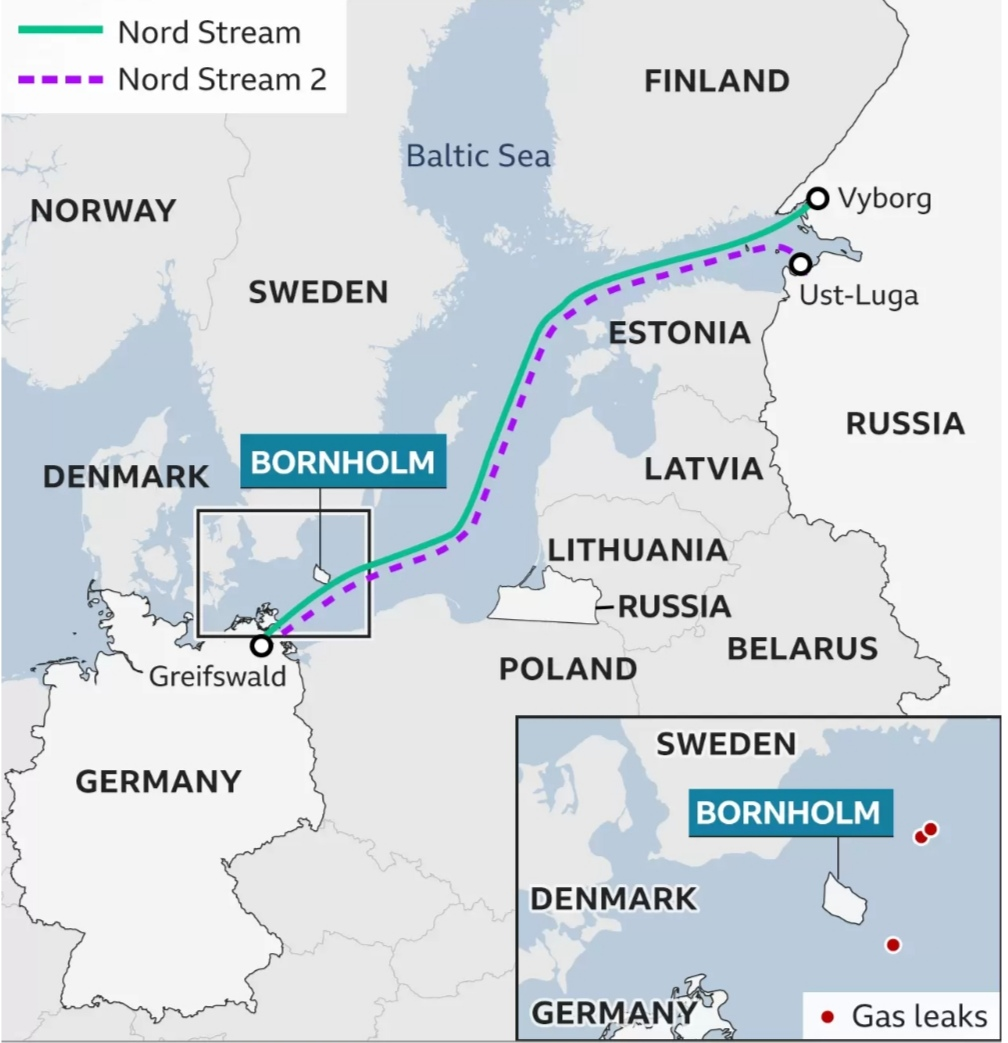Nord Stream Pipeline | 11 Feb 2023
Why in News?
The recent claims made by investigative journalists regarding the bombing of the Nord Stream gas pipelines (September 2022) have ignited intense discussions and controversies.
What is the Nord Stream Pipeline?
- About:
- The Nord Stream pipeline is a natural gas pipeline that runs under the Baltic Sea, connecting Russia and Germany.
- The pipeline was built with the aim of transporting natural gas from Russia to Europe, bypassing traditional transit countries such as Ukraine.
- The first line of the Nord Stream pipeline was completed in 2011 and the second in 2012, and it has since become a major source of natural gas for Europe.
- Nord Stream 1 is a 1,224 km underwater gas pipeline running from Vyborg in northwest Russia to Lubmin in northeastern Germany via the Baltic Sea.
- Nord Stream 2, which runs from Ust-Luga in Leningrad (Russia) to Lubmin, has the capacity to handle 55 billion cubic metres of gas per year once it becomes fully operational.
- The Nord Stream pipeline is a natural gas pipeline that runs under the Baltic Sea, connecting Russia and Germany.
- Recent Issue:
- A series of underwater explosions in the Baltic Sea ruptured the Nord Stream 1 and 2 pipelines in September 2022.
- Seismologists detected the cause for the leak to be explosions under the sea in the same area.
- A series of underwater explosions in the Baltic Sea ruptured the Nord Stream 1 and 2 pipelines in September 2022.
- Significance:
- The Nord Stream pipeline has significant economic and political implications for both Europe and Russia.
- For Europe:
- The Nord Stream pipeline provides a reliable and cost-effective source of natural gas, which is a crucial energy source for many countries in the region.
- Many European businesses have large investments in Nord Stream 2 and there is pressure on governments from these businesses.
- Finally, a reduction in gas from Russia would increase already high gas prices and that would not be popular domestically.
- For Russia:
- As for Russia, which has the largest natural gas reserves in the world, around 40% of its budget comes from sales of gas and oil.
- Furthermore, the Nord Stream pipeline provides Russia with a way to increase its influence over Europe's energy markets, as it becomes a major supplier of natural gas to the region.

